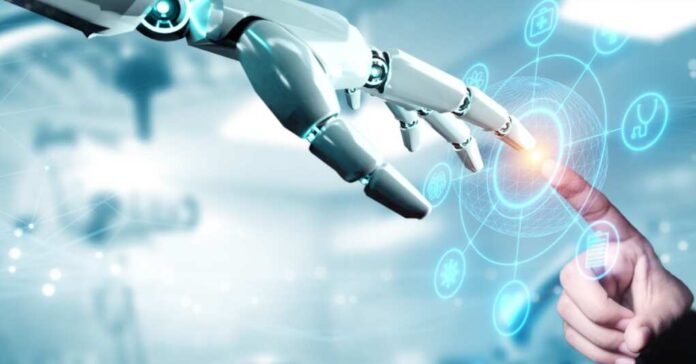The reach of AI is expanding, and it can be used for anything from generating funny cartoons to crunching numbers for companies worldwide. It started as fun and harmless, but now experts warn it could be coming for your job.
Professionals in personal finance, including financial analysts and personal financial advisors, routinely manage significant volumes of numerical data. Their responsibilities encompass analyzing market trends, assessing investment portfolios, and offering client recommendations. However, artificial intelligence (AI) can process data, identify patterns in the stock market, and forecast potential investment outcomes. AI’s predictive abilities can suggest more optimized investment mixes to create winning combinations of investments. While financial experts in this field earn good salaries, certain facets of their work can be automated by AI, streamlining processes and enhancing efficiency at the cost of their jobs.
Taking this one step further, AI also has the potential to change things on Wall Street, which could impact jobs in trading and investment banking. It can manage some of the tasks currently done by knowledge workers, freeing them up for more critical work. Dylan Roberts, a partner at KPMG, explains, “It’s going to automate select tasks that knowledge workers are engaged in today so that they can focus on higher-value tasks.” Pengcheng Shi, a dean at the Rochester Institute of Technology, agrees and warns that specific roles on Wall Street might be at risk. For example, recent graduates who spend years doing repetitive tasks like Excel modeling could be replaced by AI.
Likewise, AI’s proficiency in data analysis and forecasting could impact market research analysts. These analysts are pivotal in gathering data, identifying trends, and leveraging insights to craft successful marketing strategies or determine the best advertising placements. However, AI might outshine them, presenting an attractive “upgrade” for human analysts.
Media roles such as advertising, journalism, technical writing, and other content creation jobs could be affected by AI due to its unmatched ability to process and understand text-based data. Generative AI, in particular, can analyze and interpret extensive amounts of language-based information, potentially surpassing humans in tasks like reporting and writing. Nevertheless, experts emphasize that human judgment remains crucial in these roles.
In a post on Harvard Business Review from December 2022, three professors highlighted DALL-E, an AI tool known for rapidly generating images. According to these experts, this technology can potentially disrupt the graphic design industry. Tech specialists caution that arming millions of individuals with image creation and manipulation skills could significantly impact the economy. However, Dr. Carl Benedikt Frey, an economist from Oxford University, believes that AI tools could be used to enhance the work of creative professionals, like artists and graphic designers, by enabling them to produce higher-quality content. His main concern, however, is that AI might intensify competition, potentially leading to lower pay for graphic design artists.
The demand for coding and computer programming skills is high. Still, the increasing presence of AI could impact numerous tech professions, such as computer programmers, software developers, coders, web developers, and data scientists. With AI’s ability to crunch numbers with remarkable accuracy, advanced technologies might surpass humans in code production. Certain tech companies, like OpenAI, the creator of ChatGPT, have already started exploring the possibility of using AI to replace software engineers.
A surprising area where AI could take over is in the teaching profession. Teachers nationwide worry about students using AI platforms like ChatGPT to cheat on their homework, but Pengcheng Shi, an associate dean at the Rochester Institute of Technology, suggests that educators should also worry about job security. According to Shi, AI is already capable of leading classes, although it still has some inaccuracies that can be corrected through training. Shannon Ahern, a high school math and science teacher, remains undeterred. She believes that the human connection inherent in face-to-face instruction will always be indispensable, even in the era of AI.
One of the most frustrating consumer experiences is calling a helpline and getting an AI assistant who most likely can’t help you. With more companies offering AI “help,” it’s a trend projected to keep growing. According to a 2022 study by tech research firm Gartner, chatbots are expected to become the primary customer service source for 25% of companies by 2027.
The customer service experience alone proves that while AI is a valuable resource, its cold robotic algorithms will never be able to replace years of experience and the human touch.




